Hematopoietic aging drives lung fibrosis and profibrotic macrophage influx, stalling their maturation via reduced Treg-derived IL-10.
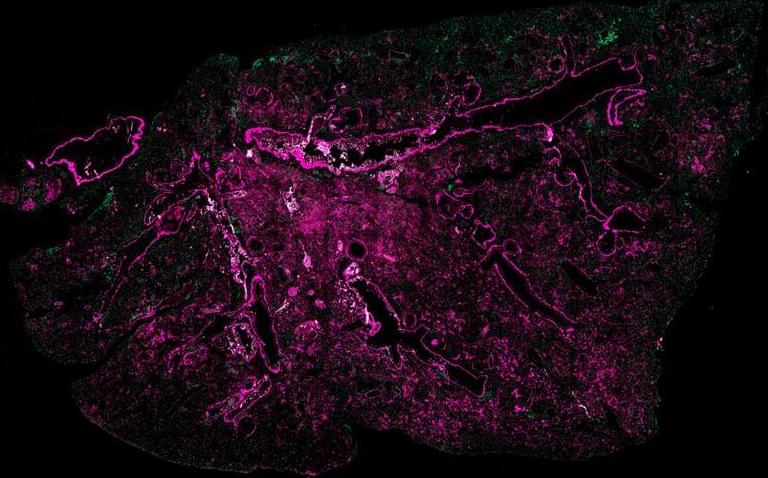

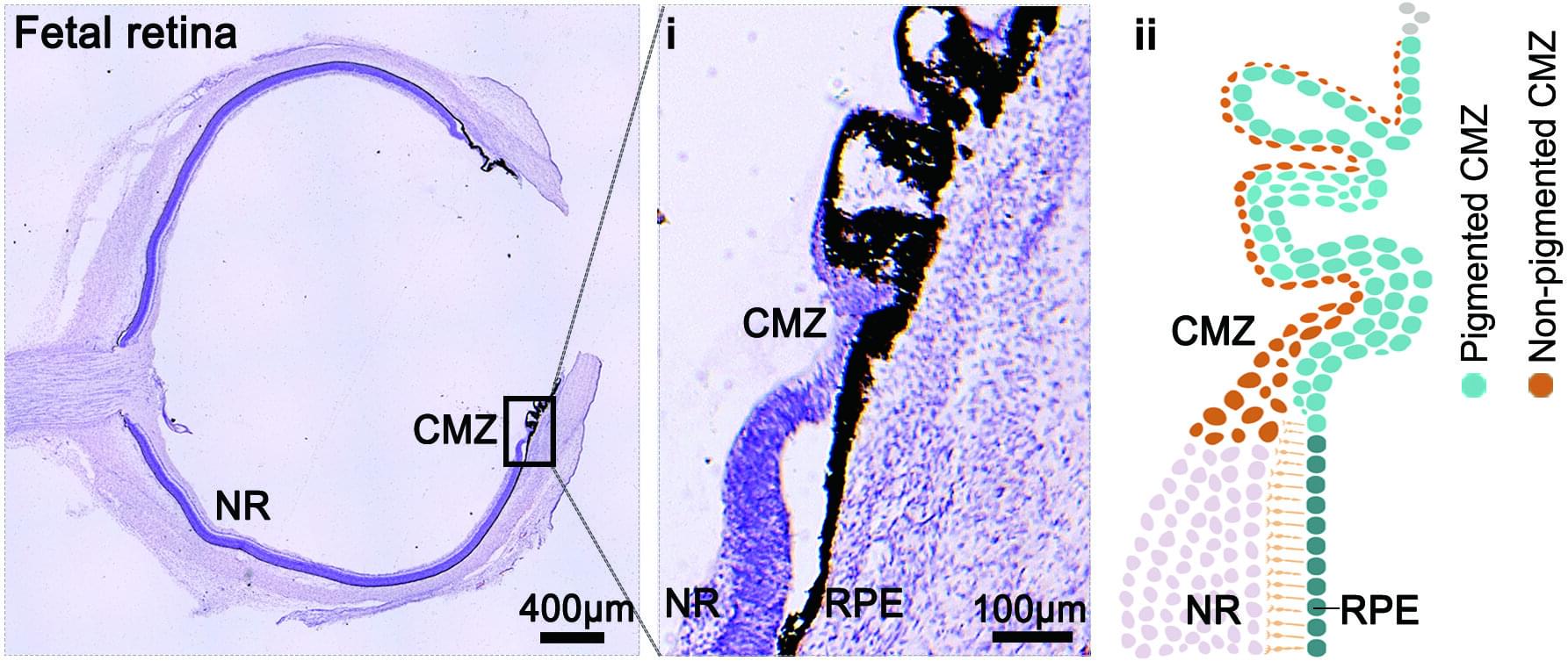
Wenzhou Medical University and collaborating institutions have identified a population of human neural retinal stem-like cells able to regenerate retinal tissue and support visual recovery.
Vision loss caused by retinal degeneration affects millions worldwide. Conditions such as retinitis pigmentosa and age-related macular degeneration involve the irreversible loss of light-sensitive neural cells in the retina. While current treatments may slow progression, they do not replace damaged tissue.
For decades, scientists have explored whether stem cells could be used to regenerate the retina, but the existence of true retinal stem cells in humans has remained uncertain. In fish and amphibians, the outer edge of the retina houses stem cells that regenerate tissue continuously. Whether a comparable system exists in the human eye has been debated for more than two decades.
You can donate via our website:
https://www.rejuvenescimento.org/
This experiment is partially funded by DoNotAge.org and Heales Foundation, and it’s also funded by many smaller donations.
https://www.rejuvenescimento.org/newsletter-english.
Instagram:
https://www.instagram.com/rejuvenescimentoicr/
LinkedIn:
https://www.linkedin.com/company/instituto-da-ci%C3%AAncia-d…mento-icr/
#rejuvenation #science #biology #exosomes #HaroldKatcher #aging
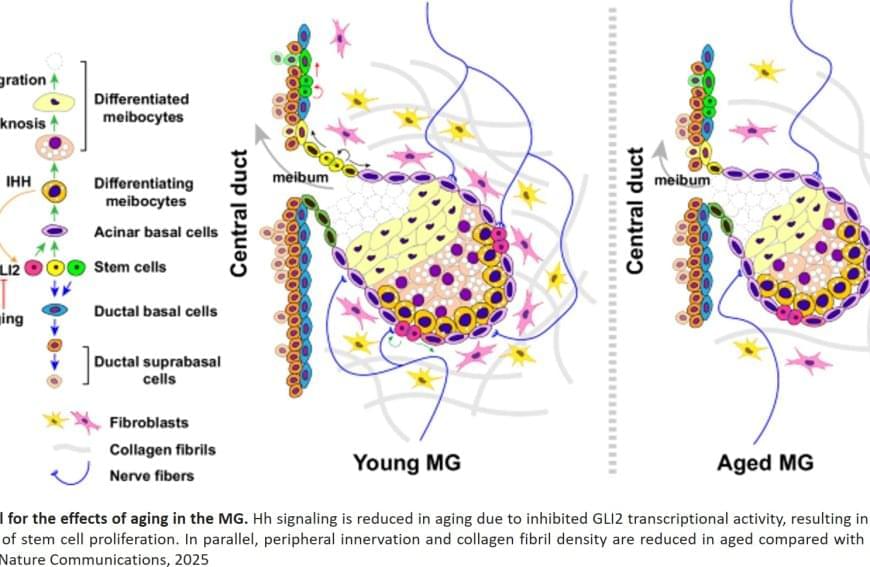
They found that increased Hh signaling is a hallmark of human meibomian gland carcinoma, a rare and aggressive cancer of the eyelid. Furthermore, the team discovered that aged glands show decreased Hh signaling and decreased epidermal growth factor receptor (EGFR) signaling, as well as impaired innervation and a loss of collagen in niche fibroblasts, suggesting that changes in both glandular epithelial cells and their surrounding microenvironment contribute to age-related degeneration.
These discoveries suggest that targeting Hh and EGFR signaling to stimulate stem cell activity in the meibomian glands could be a potential therapeutic option to treat evaporative dry eye disease.
A team of researchers has identified stem cell populations and mechanisms underlying age-related degeneration in glands that are vital to eye function. The findings, published in Nature Communications, may lead to new therapeutic approaches for evaporative dry eye disease, a common condition in older people.
Meibomian glands, tiny oil glands along the edges of the eyelids, secrete lipid-rich meibum to prevent tear evaporation and protect the eye surface. Aging-related shrinkage of the meibomian glands may result, in part, from stem cell exhaustion and is associated with evaporative dry eye disease, a common condition that causes swollen eyelids, itchy eyes, or blurred vision. Symptoms may be lessened with warm compressions, artificial tears, and thermal pulsation, but these treatments are only partially effective.
The researchers identified markers for stem cell populations that maintain distinct regions of the meibomian glands, and uncovered the hedgehog (Hh) cell-cell signaling pathway, which is broadly important in development and disease, as a key regulator of meibomian gland stem cell proliferation and tissue regeneration.

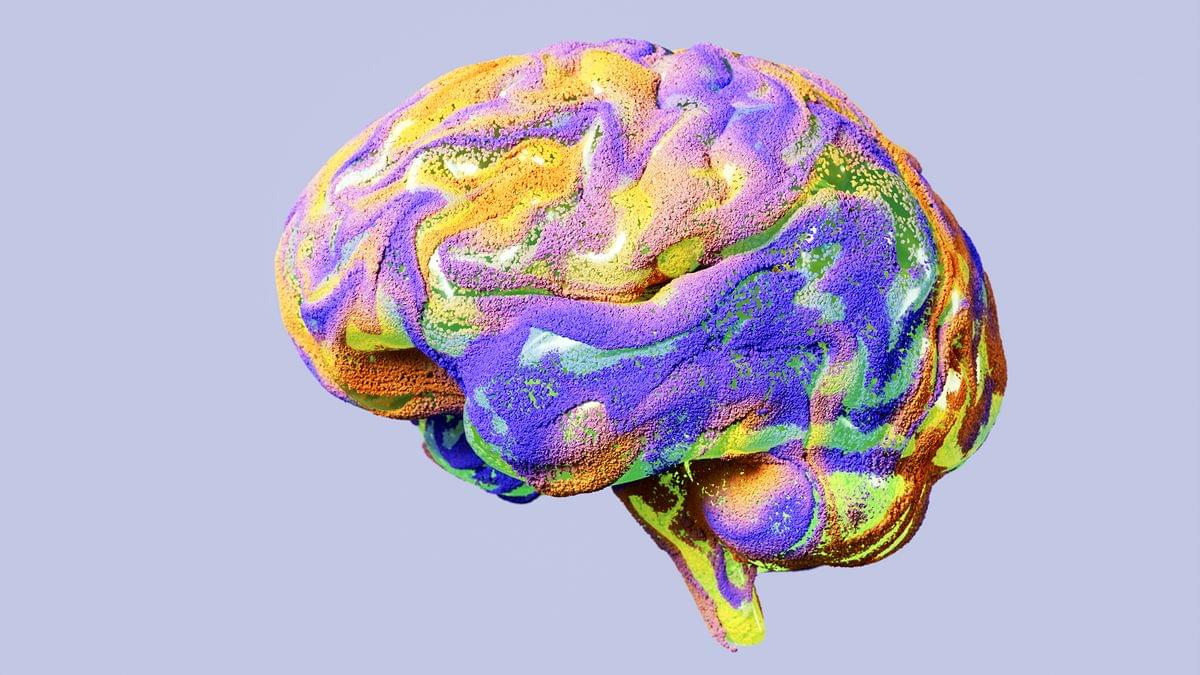
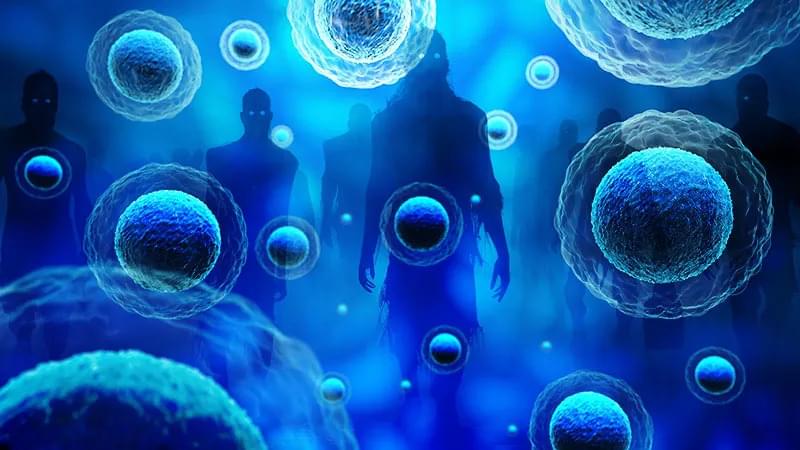
Molecular nanotechnology, life extension, AI, biostasis, and the real threats to the future
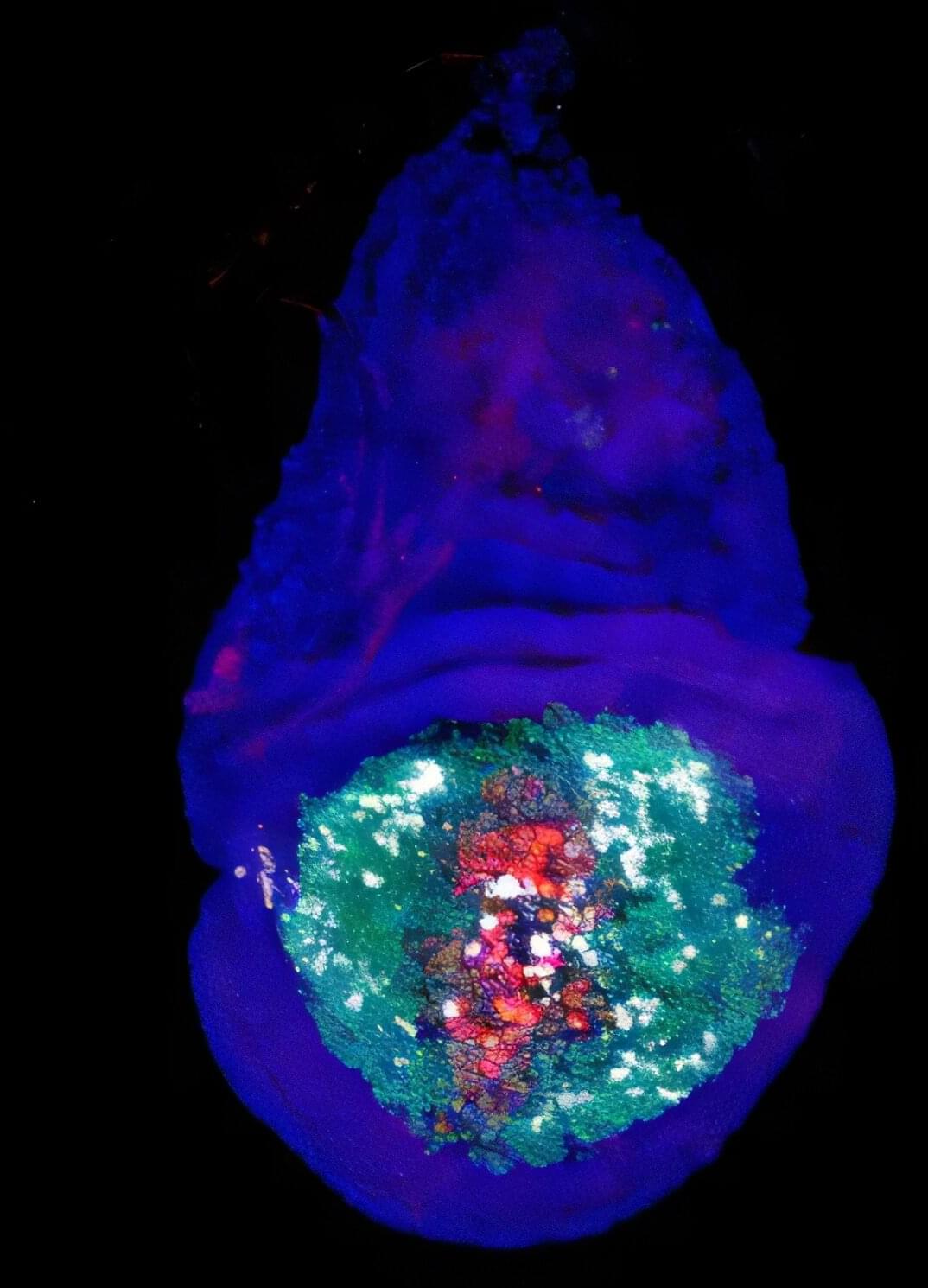
Researchers have shed new light on how tissues in the body are repaired following the damage and premature death of tissue cells.
Their study in fruit flies, which first appeared in eLife as a Reviewed Preprint and is now published as the final version, describes what the editors call fundamental discoveries with solid evidence for how dying (or necrotic) cells contribute to tissue regeneration through a previously uncharacterized mechanism. It suggests that these cells play a role in signaling for the body to produce other types of cells that are involved in controlling natural cell death and inflammation, with findings that may have implications for wound repair and tissue regeneration.
As our bodies grow and develop, cells naturally die off where they are no longer needed, in a process called apoptosis. On the other hand, cells can be damaged and die prematurely due to injury, infectious diseases or other factors, in a process known as necrosis.
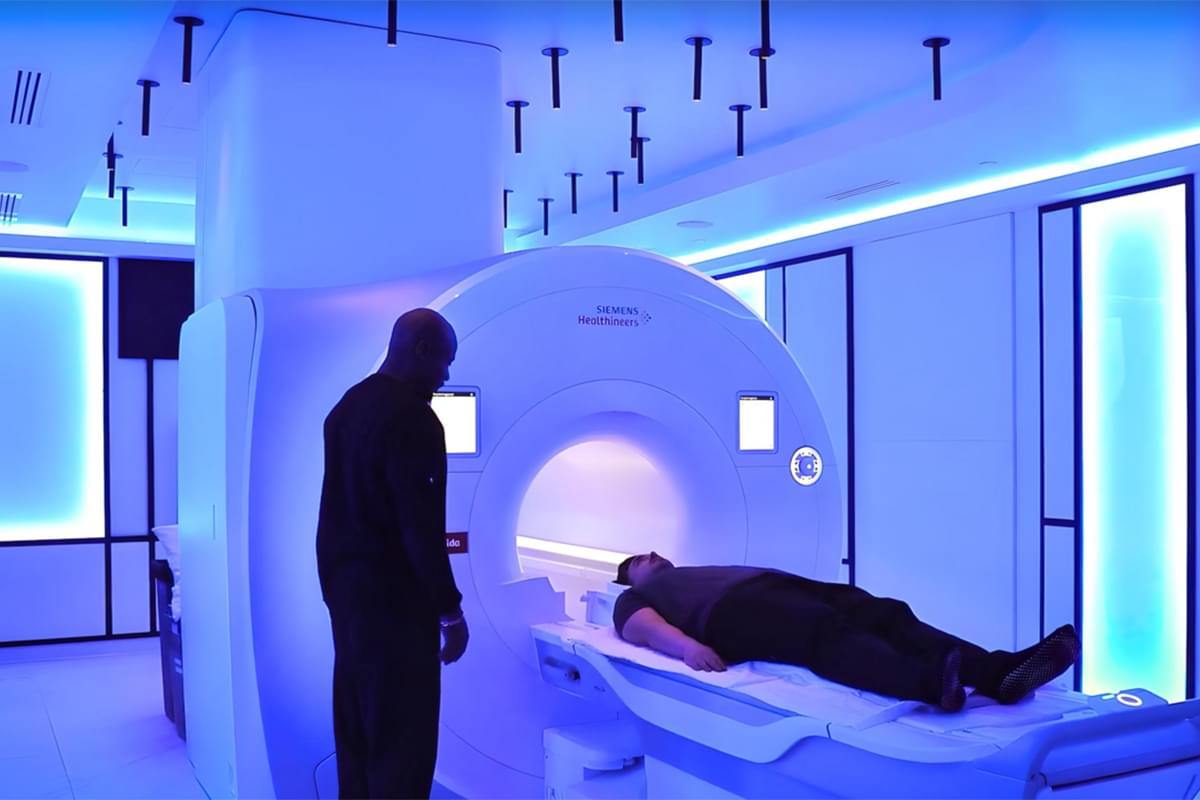
In an unprecedented move, precision medicine provider Human Longevity, Inc. (HLI) has effectively guaranteed its Executive Health Program members that it will prevent them from developing late stage prostate cancer. Such is the company’s belief in its preventive approach, it has announced it is committing $1 million for advanced treatment of any member diagnosed with stage four of the disease or higher while under its care.
Founded in 2013 by genomics pioneer Dr J Craig Venter, San Francisco-based Human Longevity Inc. (HLI) aims to extend human health and performance beyond the traditional focus on treating illness. By continuously analyzing health data from its clients, HLI seeks to identify potential health risks – such as prostate cancer – early, enabling targeted interventions to extend both healthspan and lifespan.
Leveraging data collected from more than 5,000 men over the past decade, HLI claims it has developed what it believes to be the most advanced algorithm for early prostate cancer detection. As preventive medicine continues to demonstrate its capacity to mitigate previously life-threatening conditions, will we see commitments of this nature emerging for more diseases?